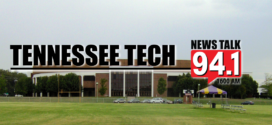Local public safety and emergency management expert Mark Warnick has released a book on ways to stop acts of mass violence.
Warnick released “Preventing Mass Violence: A Whole Community Approach” after seeing history repeat itself too many times. Warnick said mass violence dates back to the 1760s, but the acts have increased in recent years.
“There’s an effect called the contagion effect also sometimes known as the copycat effect and when we see the person’s name being put in the news constantly, their picture, they gain a certain amount of fame and that inspires the next shooter,” Warnick said.
Warnick said he has been researching mass violence since 2008. He said too often mass violence situations play out the same, with clues missed by many people.
“In many instances, we see people that say ‘Well they were acting strange, they did this, they did that, they were lucid, they were torturing animals,'” Warnick said. “And when we look at the totality of that, there are always warning signs, or at least usually warning signs that someone could become a mass shooter or a mass killer.”
Warnick said training the public instead of putting all of the responsibility on law enforcement is really important in stopping and preventing acts of mass violence. The book teaches early signs someone could become a mass shooter, having situational awareness, and knowing what to look for and how to report it.
“It typically revolves around mental health, there’s those that say that active shooters and active bombers and all of those are suicide by violent means, meaning that they pull other people into their suicide attempt,” Warnick said.
Warnick said he hopes his book teaches people how to come together as a community to prevent disasters such as acts of mass violence.
“In emergency management there’s a concept called ‘A Whole Community Approach’, and what you do is you draw all the stakeholders in and you help them to understand that they’re part of the community and if they do their part, and everyone does their part, that recovery from disasters or prevention of disasters is much more feasible,” Warnick said. “And the same applies to preventing mass violence.”
Warnick said he began writing the book six years ago pulling from that and his three decades of experience working in first responder and emergency services.
 News Talk 94.1/AM 1600 Where The Upper Cumberland Talks
News Talk 94.1/AM 1600 Where The Upper Cumberland Talks







